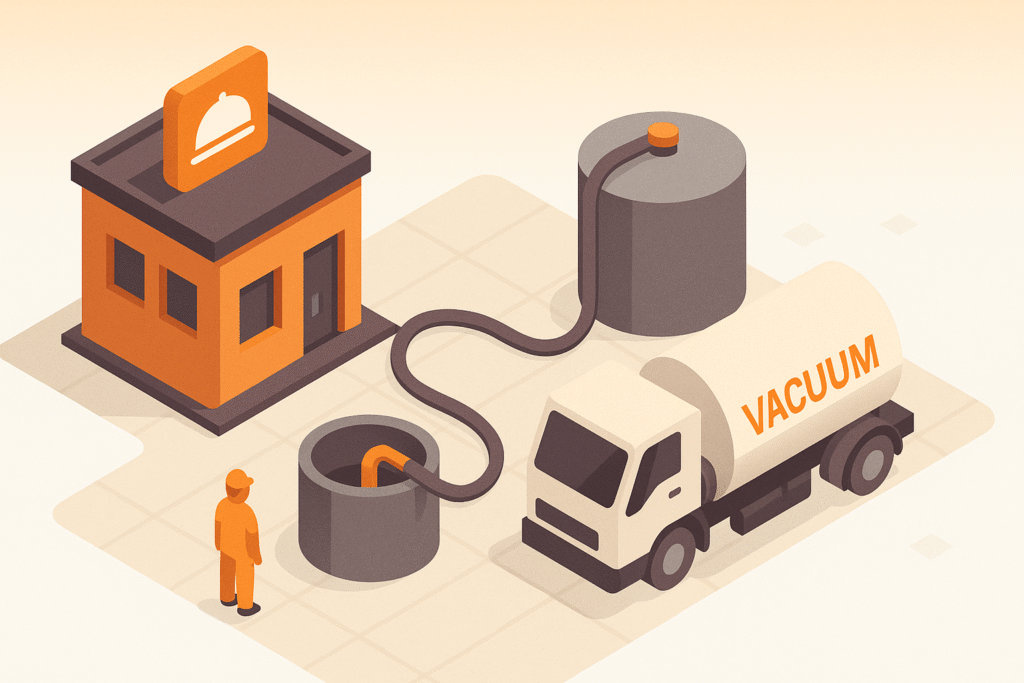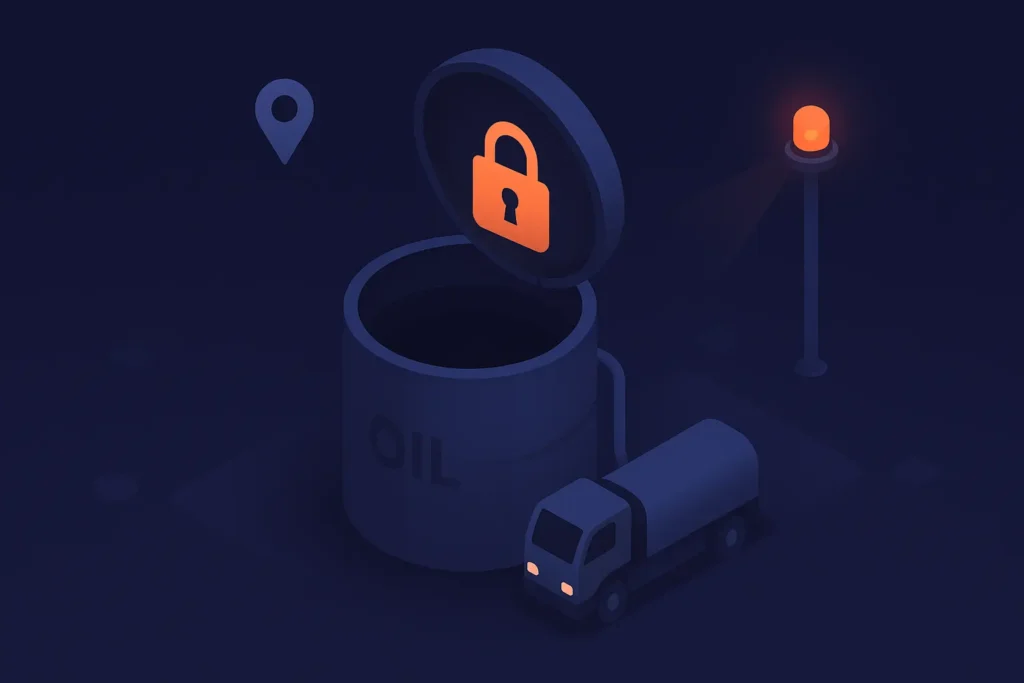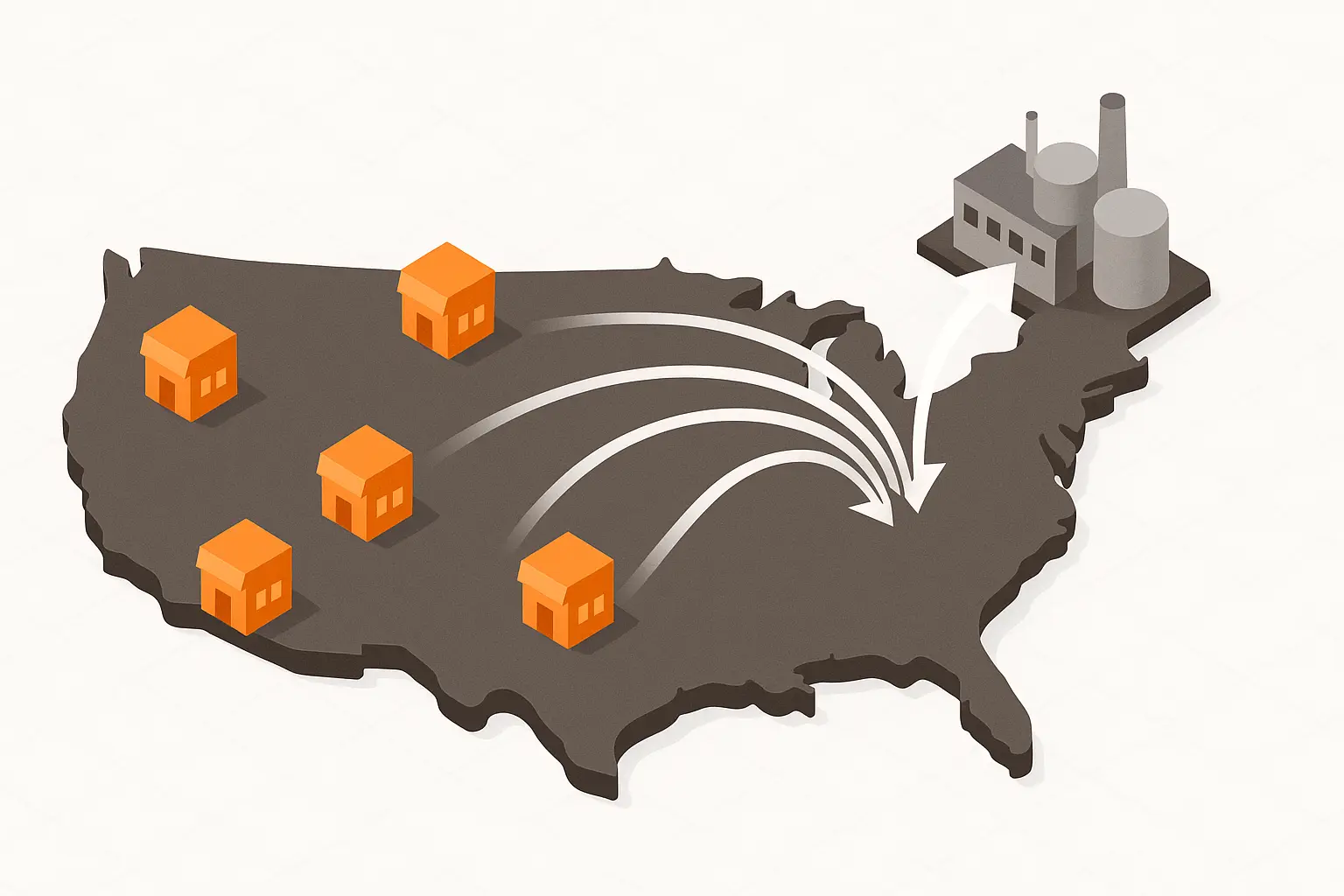Table of Contents
Why Your Fryer Oil Suddenly Matters to Jets
America collected about 3.3 billion lb of used cooking oil in 2024, but biofuel makers needed 5.7 billion lb a shortfall that’s pushing prices and scrutiny higher. According to Fastmarkets, UCO is now “a cornerstone feedstock” for sustainable aviation fuel (SAF). Environmental Energy Leader warns the HEFA pathway that airlines rely on will hit a bottleneck if waste oil capture does not improve.
Grease Connections feels that pinch daily. “Every refinery on our call sheet wants more gallons than we can load,” says co founder Jorge Argota. His team now treats each pickup as aviation cargo in disguise moving a burger joint’s by product toward low carbon jet fuel within a week. The following playbook blends our field experience with hard code, EPA regs, and market data so restaurant managers can profit and so tomorrow’s flights can take off on cleaner fuel.
A Morning on the Truck: From Fryer to Vacuum Hose
Carlos, one of our Miami drivers, starts at 4 a.m. so fryers will be cool enough to drain. At Jackson Street Diner he connects a two inch food grade hose, taps a button, and a sensor logs 164 gallons data that instantly updates dispatch. SmartService routing shaved 27 miles off his old loop, saving roughly 44 lb of CO₂ and an hour of overtime.
Each step follows IFC § 607: sealed, UL listed tank, normal and emergency vents, no manual buckets. By 10 a.m. Carlos’ compartment is full; the manifest prints in the cab and a copy drops into the restaurant’s dashboard for the health inspector. “It used to be paper slips that blew off the clipboard,” he laughs. The digital ticket is also our chain of custody proof when we sell that batch now classified as Grade A UCO to a Gulf Coast pretreatment plant bound for SAF reactors.

Passing the Fire Marshal Test Every Tank, Every Time
Cooking oil over 60 gallons is a Class IIIB combustible. IFC 607 and NFPA 30 demand UL 80/UL 142 metallic or UL 2152 composite tanks plus dual venting. UL explains that heaters, pumps, and even the sight glass must meet electrical standards in NFPA 70. We learned this the hard way in Austin last spring: an inspector red tagged a plastic tote we inherited from a competitor. Our crew swapped in a 165 gallon UL 142 tank before lunch, tied its alarm into the hood system, and the marshal signed off that afternoon.
| Stored Volume | Required Tank | Key Code Clause |
|---|---|---|
| ≤ 60 gal | Original containers | IFC 607.1 |
| 60 to 200 gal | UL listed metallic or composite | IFC 607.3 |
| > 200 gal | UL 142 + ext. vent | IFC 607.3 / NFPA 30 |
Keeping spill kits on the truck isn’t optional either: EPA’s SPCC rule (40 CFR 112) flags any spill ≥ 25 gal on land for immediate reporting. We train staff to hit the app based incident form before the media hits record.
The Fast Road to SAF What Happens After We Drive Off
Once our Houston transfer hub reaches 50 tons, a wash cycle tanker heads to a HEFA refinery where hydrotreaters strip oxygen and crack long chain fatty acids into jet grade molecules. The global SAF market, valued at $2 billion in 2025, is forecast to hit $25 billion by 2030. But HEFA yield tops out without more waste oil, and Europe is already importing UCO to close the gap, raising fraud concerns.
Our own lab flags adulterated loads like the tanker that tested 5 % palm olein last quarter and we rejected it on the spot. Those controls keep airlines confident their fuel meets ASTM D7566 annex A2. In 2024 alone, Grease Connections shipped 48 million pounds of verified UCO enough for 11,000 carbon neutral flights from Miami to New York. “Seeing that carbon math makes the 3 a.m. starts worth it,” Carlos says with a grin.
Dollars & Data Real Rebate Math from 2025 Statements
Rebates come from the same commodity markets that fund SAF credits. Our April 2025 average was $0.28 per gal base rate plus a $0.07 clean oil bonus and $0.03 volume kicker. When Renewable Identification Numbers (RINs) fell 35 % last winter, base rebates sagged, too, mirroring Fastmarkets’ Q4 price slide.
| Component | Typical ¢/gal | How Restaurants Boost It |
|---|---|---|
| Base market | 10 to 50 | Drain crumbs, keep water out |
| Quality bonus | +5 to 15 | Filter fryer before dumping |
| Volume tier | +2 to 8 | Route multiple sites together |
Our dashboard shows yesterday’s USDA yellow grease index so chefs can forecast next month’s credit no surprises, just the numbers.
Theft Case File Atlanta, 2 a.m., 400 Gallons Gone
The black market value of grease hit “liquid gold” status, and Suffolk County NY alone logged 100+ thefts in 2023. In Atlanta, two men siphoned 400 gallons behind a chicken joint; police pegged resale at $2.38/lb, nearly $7,600. We recovered half the load using GPS tagged lids introduced after Evergreen’s 2022 theft spike. The lesson: hardened locks, motion lights, and real time level sensors cut incidents by 60 % across our pilot sites.

Smarter Routing Carbon Cuts You Can Taste
Routing software built for cooking oil collection (SmartService, RouteSimplified) reduced our dead head miles by 30 % across six states. Dispatch layers weather and road data, so last month’s Houston floods shifted 17 stops to Saturday with zero service failures. For multi unit groups, synchronized pickups avoid fry line shutdowns and tighten rebate tiers. Megan Torres, our logistics director, sums it up: “If the route is lean, the fryer stays clean, and the jet gets green fuel sooner.”
Choosing a Collection Partner Four Questions to Ask
Compliance proof, transparent pricing, digital manifests, and documented SAF off take those are our north stars. Ask any collector for UL certificates, real rebate formulas, downloadable EPA manifests, and refinery contracts. Grease Connections posts all four inside its customer portal, plus sensor data you own. Check if we cover your ZIP on the service area page and book a free site walk through.
Quick Answer Box
- How often is the tank emptied? Sensors trigger pickup near 80 % full about every 10 days for most diners.
- Is used oil hazardous? It’s a combustible liquid; spills over 25 gal must follow SPCC reporting.
- What’s my 2025 rebate? Expect $0.10 to $0.50 per gal, adjusted monthly.
- Can thieves steal my oil? Yes; hardened locks and GPS lids cut theft 60 %.
- Does my grease really fly? All Grease Connections loads trace to HEFA refiners under ASTM D7566 annex A2 contracts.
Next Step
Book your assessment; we’ll mark tank placement, handle permits, and have your first rebate flowing seven days after sign up another flight fueled, thanks to your fryer.









